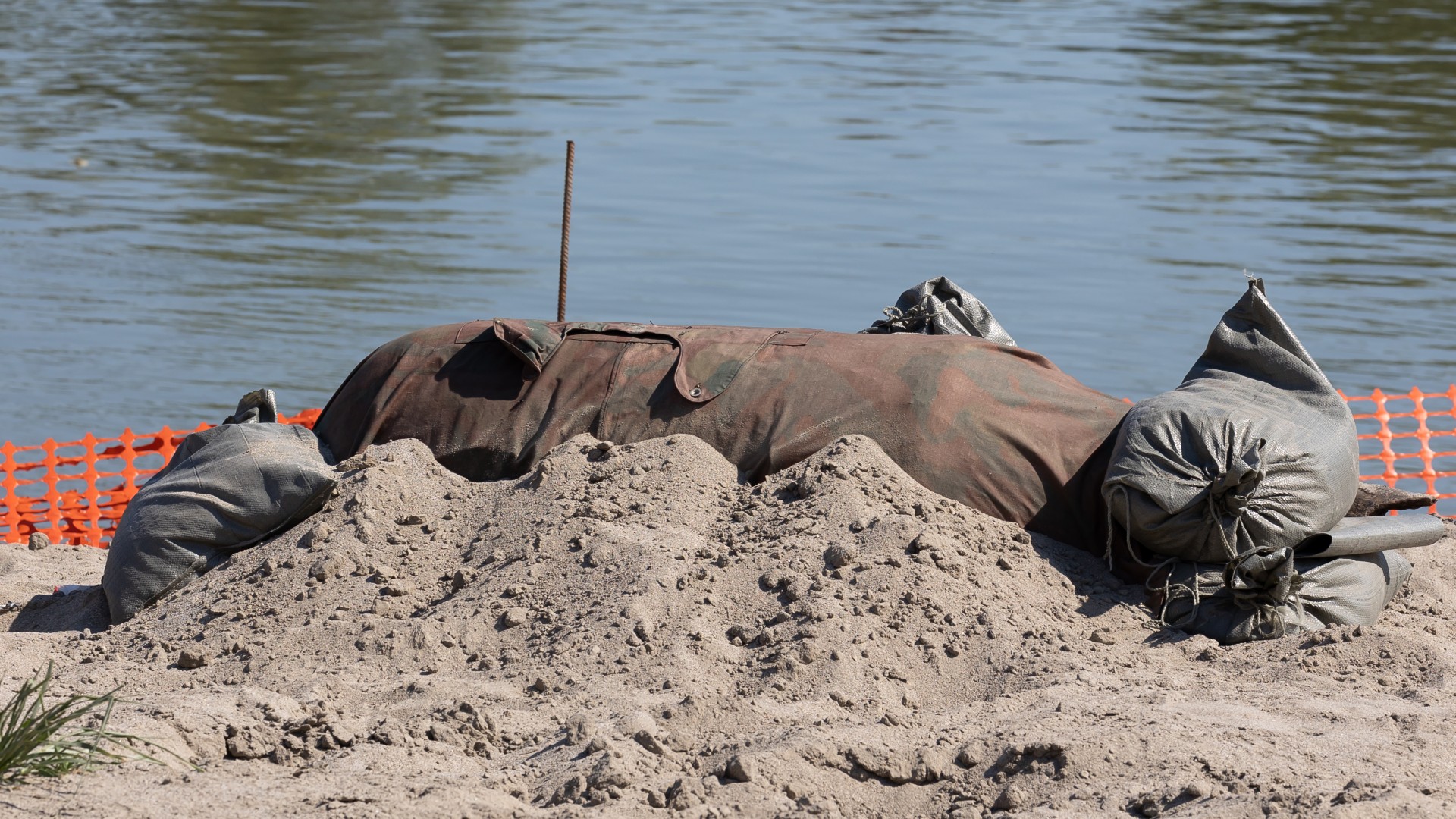Intact WWII-era bomb discovered in Italy's River Po following extreme drought
Roughly 3,000 people were evacuated before the military detonated the 1,000-pound bomb.

Extreme drought brought on by record high temperatures in Europe has revealed an unexploded, WWII-era bomb nestled along the banks of Italy's River Po.
Fishermen discovered the American-made bomb on July 25, near the northern Italian village of Borgo Virgilio, near the city of Mantua, according to Reuters. The bomb appeared to have been submerged there for more than 70 years.
However, water levels in the River Po — which stretches east-west across northern Italy and is the country's longest river — have diminished significantly this summer, following multiple heat waves that hit many parts of Europe (including Italy) with record high temperatures.
WW2 bomb revealed in drought-hit waters of Italy's River Po https://t.co/XxYLkF6M6q pic.twitter.com/SiNbGGCtQGAugust 7, 2022
According to military experts, the bomb weighed nearly 1,000 pounds (450 kilograms). After evacuating the roughly 3,000 civilians who live in the village's vicinity, military experts cut the bomb's fuse and moved the device to a quarry about 30 miles (45 km) away. There, the bomb was destroyed in a controlled detonation. There were no injuries or damages reported from the controlled explosion.
Related: Lake Mead dwindles, and a WWII-era 'swamp boat' emerges
This summer has seen much of the Northern Hemisphere hit with extreme heat waves, which are predicted to become more and more common as a result of ongoing climate change. In late June, Rome reported its highest recorded temperature ever, at 105 degrees Fahrenheit (40.5 Celsius), according to The Washington Post.
During the June heat wave, Rome's Tiber River dried up so much that the ruins of an ancient bridge built during the reign of Emperor Nero (who ruled as the Roman Empire's fifth emperor from A.D. 54 to 68) became plainly visible on the river bottom. The bridge ruins only appear during long periods of drought, experts told Live Science.
Sign up for the Live Science daily newsletter now
Get the world’s most fascinating discoveries delivered straight to your inbox.
Because of the ongoing drought, Italy declared a state of emergency last month for areas surrounding the River Po, where roughly one third of Italy's agricultural production takes place, according to Reuters. (The state of emergency had nothing to do with the bomb). The region is suffering the worst drought seen in roughly 70 years.
Originally published on Live Science.

Brandon is the space/physics editor at Live Science. His writing has appeared in The Washington Post, Reader's Digest, CBS.com, the Richard Dawkins Foundation website and other outlets. He holds a bachelor's degree in creative writing from the University of Arizona, with minors in journalism and media arts. He enjoys writing most about space, geoscience and the mysteries of the universe.









